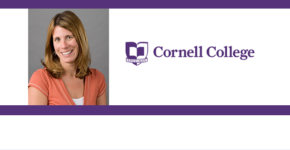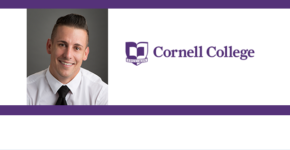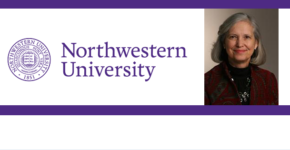Category: Health
-

Jennifer Hurley, Rensselaer Polytechnic Institute – Circadian Clock Disruption
How important is it to be in tune with your circadian clock? Jennifer Hurley, assistant professor of biological sciences at Rensselaer Polytechnic Institute, delves into this question. Dr. Jennifer Hurley received her B.S. from Juniata College in 2004 in Molecular Biology and her Ph.D. at Rutgers/UMDNJ for studying the function of Toxin-Antitoxin modules. She completed…
-

Katherine Rafferty, Iowa State University – Doctor Parent Communication
Having a chronically ill child is a stressful situation for parents. Katherine Rafferty, lecturer at Iowa State University, discusses how parents can become advocates to ensure their child gets the best care possible. Katherine Rafferty is a lecturer at Iowa State University and teaches a variety of communication courses to undergraduate students. Katherine is the…
-

Emilia Simeonova, Johns Hopkins Carey Business School – Health Benefits of a Congestion Tax
Taxing those who drive in cities can have positive side effects. Emilia Simeonova, assistant professor at the Johns Hopkins Carey Business School, explains why. Emilia Simeonova, PhD (Economics from Columbia University in 2008) joined Johns Hopkins Carey Business School in 2013 from Tufts University. Between 2011-2012 she was a research fellow at the Center for…
-

Julia Seng, University of Michigan – Pregnancy and PTSD
Toxic stress can affect more than just a pregnant woman. Julia Seng, professor in the school of nursing at the University of Michigan, says child abuse and neglect can affect more than one generation in a family. Dr. Seng’s research focuses on the effects of posttraumatic stress disorder (PTSD) on women’s health and childbearing. Her…
-

Ashwini Tambe, University of Maryland – What Is Sexual Coercion?
** As a warning, this segment includes a frank discussion about sexual misconduct some listeners may find upsetting ** Sexual harassment can have many forms. Ashwini Tambe, associate professor in the department of women’s studies at the University at Maryland, examines why we should not lump everything together into one category. Dr. Ashwini Tambe is…
-

Melinda Green, Cornell College – Fighting Eating Disorders in Women
How do we reduce eating disorders in women? Melinda Green, assistant professor of psychology at Cornell College, discusses how to fight against the ‘thin ideal’ by sharing stories with other women. Dr. Melinda Green examines biological, psychological, and sociocultural correlates of eating disorders and examines the efficacy of dissonance-based eating disorder prevention and treatment paradigms.…
-

Brian Johns, Cornell College – Virtual Reality Practice for Doctors
Video games might improve your next surgical procedure. Brian Johns, assistant professor of engineering at Cornell College, explains how virtual reality environments can help doctors practice when real-life does not allow. Brian Johns teaches courses covering a range of engineering topics, including design principles, mechanics, thermodynamics, and materials at Cornell College in Mount Vernon, Iowa.…
-

Dorothy Dunlop, Northwestern University – Older Adults, Exercise and Arthritis
Is merely being active enough, or is there a right way to stay in motion? Dorothy Dunlop, professor of medicine at Northwestern University, explores this question. Dr. Dunlop is a health services researcher with expertise in statistical methodology. Her applied research interests include the investigation of physical activity to prevent disability in older adults and…
-

Elizabeth Abbey, Whitworth University – Pastors and Health
Are you a healthy person? Elizabeth Abbey, assistant professor of health sciences at Whitworth University, examines how complicated the answer to this question can be and how many sources the answer may come from. Elizabeth “Beth” Abbey is an Assistant Professor in the Department of Health Sciences at Whitworth University where she teaches courses in…

